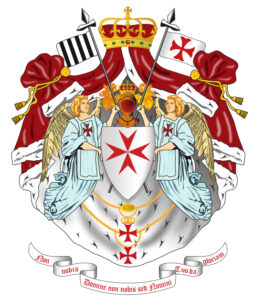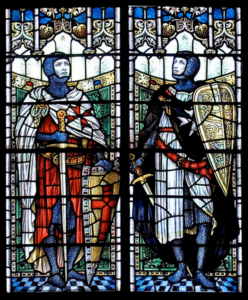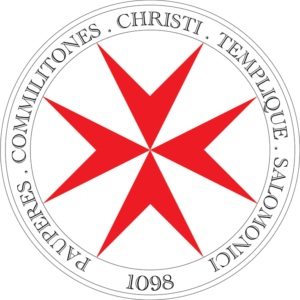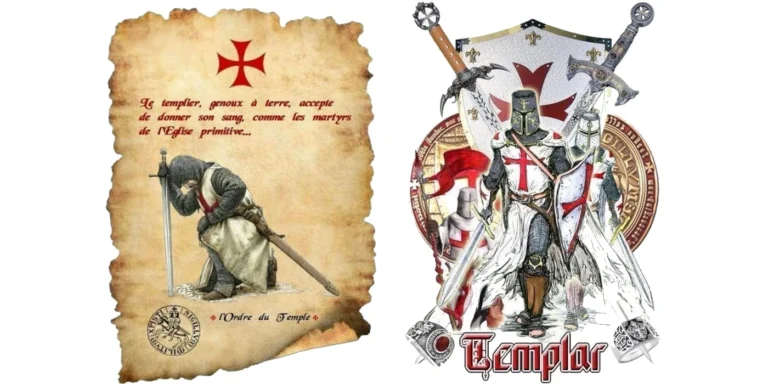The Autonomous Grand Priory of Scotland » Priory for Continental Europe
Legitimita a právní postavení Militi Templi Scotia

Řád je registrovaný v Evropské unii pod identifikačním číslem (PIC) #878046620.
Pauperes commilitones Christi templique Salomonici je dobrovolné, nezávislé a nepolitické sdružení templářských rytířů sdružující své registrované členy na základě společného zájmu. Je samostatnou právnickou osobou #07826460 a působí v Česku podle českého práva. U výkonné agentury EU EACEA (Evropská výkonná agentura pro vzdělávání a kulturu Evropské komise) je registrován pod identifikačním kódem účastníka (PIC) #878046620.
 Autonomní Velkopřevorství řádu Templářského – Militi Templi Scotia, tedy samosprávné Velkopřevorství armády Ježíše Krista je uznané Skotským králem Robertem I. známým též jako Robert Bruce, 9. lord z Annandale, hrabě z Carricku, jenž vládl Skotsku v letech 1306 – 1329 a řádu templářskému poskytl azyl. Jako autonomní (samosprávné) se velkopřevorství řídí vlastní ústavou, velkopřevorem, velkou radou, řádovými symboly a znaky. Na rozdíl od řádu jako celku není Autonomní Velkopřevorství samostatně subjektem mezinárodního práva. Má právo na určení úředních jazyků a vydávat vlastní zákony platné pro své příslušníky a také na území velkopřevorství. Příslušníci řádu se řídí právními předpisy vydanými Velkopřevorstvím. Organizační struktura Autonomního Velkopřevorství řádu armády Ježíše Krista je vojenská. Tomuto principu je podřízeno veškeré fungování Autonomního Velkopřevorství Skotských Templářů. Z moci svých zděděných práv uděluje řád šlechtické tituly. Rituály a ceremonie řádu jsou vykonávány dle interních směrnic.
Autonomní Velkopřevorství řádu Templářského – Militi Templi Scotia, tedy samosprávné Velkopřevorství armády Ježíše Krista je uznané Skotským králem Robertem I. známým též jako Robert Bruce, 9. lord z Annandale, hrabě z Carricku, jenž vládl Skotsku v letech 1306 – 1329 a řádu templářskému poskytl azyl. Jako autonomní (samosprávné) se velkopřevorství řídí vlastní ústavou, velkopřevorem, velkou radou, řádovými symboly a znaky. Na rozdíl od řádu jako celku není Autonomní Velkopřevorství samostatně subjektem mezinárodního práva. Má právo na určení úředních jazyků a vydávat vlastní zákony platné pro své příslušníky a také na území velkopřevorství. Příslušníci řádu se řídí právními předpisy vydanými Velkopřevorstvím. Organizační struktura Autonomního Velkopřevorství řádu armády Ježíše Krista je vojenská. Tomuto principu je podřízeno veškeré fungování Autonomního Velkopřevorství Skotských Templářů. Z moci svých zděděných práv uděluje řád šlechtické tituly. Rituály a ceremonie řádu jsou vykonávány dle interních směrnic.
Templáři z Autonomního Velkopřevorství Skotska jako ochránci křesťanské víry (duchovní) a zároveň vojáci armády Ježíše Krista ustanovují v rámci svého fungování v prostoru Evropské unie v České republice za místo svých obřadů a ceremonií chrám Sacre Coeur, jenž byl postaven v roce 1884 pro řád “panen Srdce Pána Ježíše”. Nachází se v Praze 5 a plynule přechází do nového veřejného parku Sacre Coeur. Výběrem místa je v úctě k tradici naplňován i zobecněný název příslušníku řádu – Templáři. Zde v zemi Bohemiae v srdci Evropy zasedají templáři v Templu (tedy chrámu) s názvem Srdce Ježíšova. Řád je registrován v ČR jako spolek s názvem Pauperes commilitones Christi templique Salomonici z.s.
Desatero pravidel chování rytíře
 Měj vždy na paměti, že slovo dělá rytíře. Tvé slovo. Rytířský kříž, plášť i dekret z Tebe rytíře nedělají. Dokládají pouze, že jsi toho hoden. Nedávej proto své slovo lehkovážně, ale dáš-li je, učiň vše pro jeho dodržení.
Měj vždy na paměti, že slovo dělá rytíře. Tvé slovo. Rytířský kříž, plášť i dekret z Tebe rytíře nedělají. Dokládají pouze, že jsi toho hoden. Nedávej proto své slovo lehkovážně, ale dáš-li je, učiň vše pro jeho dodržení.- Pravda, spravedlnost a právo Ti musí ležet na srdci především. Jako rytíř bys nikdy neměl váhati a otáleti, nýbrž meč svůj pro ně zvednouti. Nikdy neupírej právo tomu, komu náleží a staň se tak spravedlivým.
- Dobrý rytíř musí býti Bohu a zemi své oddán tělem i duší. Bůh, Vlast, Král, Řád. Toto je pořadí hodnot rytíře. Zpovídej se Bohu, ochraňuj svou zemi, cti svého krále a respektuj řád, jehož jsi součástí.
- Ztratí-li rytíř svou čest, není pro jeho duši záchrany. Oklamat lze kohokoli jen ne Boha a své vlastní svědomí. Kdo zradí své řádové bratry a řád, ten ztratí i víru, jeho další život se stane prázdný a již nikdy klidu nenalezne.
- Bližním pomáhej bez vidiny odměny či jiného užitku a Bůh tě odmění sám. K příteli a bratru se chovej přátelsky a neopusť jej, pokud v neštěstí bude. S nepřítelem bojuj, ale cti jej a nikdy neurážej. Zlí a zákeřní lidé nejsou hodni Tvého hněvu, zvítěz nad nimi moudrostí a s noblesou.
- Ušel jsi dlouhou cestu, než ses stal rytířem. Nyní jsi rytíř, jsi tedy schopný rozeznat dobro a zlo. Pravda je často skryta, je nepřesná z jednoho úhlu pohledu. Nahlížej proto na věc z více stran a s nadhledem, abys odhalil fakta a předešel nežádoucím důsledkům. O řádu a svých bratrech nepochybuj a vyjadřuj se o nich jen v dobrém. Víru a přesvědčení své braň, ale pamatuj; v bludu setrvává pouze hloupé hovádko u cesty.
- Úkol představeného splň bez odmluv a nářků a vždy doveď do konce. Dodržuj předepsaná pravidla, jež jsou výsledkem úsilí mnoha generací rytířů před Tebou. Dodržuj průběh řádových ceremonií, zasedací pořádek, ústrojovou kázeň, pravidla nošení insignií a vyznamenání, docházkovou kázeň a pokyny nadřízených důstojníků v řádu. Nespěchej s tím hned vše vědět a znát. Věz, že vše na co potřebuješ znát odpověď, se dozvíš v ten pravý čas a na pravém místě.
- Pamatuj, že “Mluviti stříbro, mlčeti zlato”, a tajnosti naše nikomu nevyzraď. Co se v řádu řeší, není pro cizí uši, neboť to mohou být i uši nepřátel. Co vidíš, slyšíš a čeho se účastníš v řádu, patří jen Tobě a nikomu jinému.
- Jednej a konej vždy v pravou chvíli, aby to k užitku bližního bylo a ne na jeho škodu. Pro ochranu a prosazení dobra se nezdráhej užít i momentu překvapení a pamatuj, že nejlepší obranou je vždy útok, jenž rozklíží svévolné nečestné plány Tvého protivníka.
- Zlý se zlým se domluví rychle. Pak mnohem větší síla zla stojí proti Tobě. Ač sám tomu čelíš, přece nejsi osamocen. V těžkých dobách Tě posilují a jsou s Tebou všichni, jimž jsi kdy pomohl a všichni Tví řádoví bratři. Prohru či nezdar přijmi bez mrzoutství a zloby, do budoucna se dívej s otevřeným hledím a vírou, že nepřízeň osudu, naším Pánem ti daná, otočiti se ráčí.

Non nobis Domine,
non nobis, sed nomini
tuo da gloriam
(Ne nám, ó Pane, ne nám, ale jménu Tvému budiž sláva)
Jaký smysl mají v dnešním světě rytířské řády? Mnoho lidí by řeklo, že dnes již žádný smysl nemají, že se jedná o jakási přežívající uskupení z dob dávno minulých. Domnívám se, že to tak není a že tvrzení těchto lidí vyplývá z nevědomosti, což je pochopitelné vzhledem k prezentaci historie na školách za posledních sto let.
Rytířské řády mívaly zpravidla vždy celospolečenský nadhled. Měly přehled přes veškeré činnosti lidského dění a právě takové organizace dnešní společnosti opět chybí, neboť vše je dnes zaměřeno především do jedné oblasti – zisk za každou cenu. Morálka, právo, mezilidské vztahy to vše naší moderní společnosti schází. Rytíři hájili dobro, byli čestní, stateční a galantní k ženám. Dnes je možná rytířů zapotřebí více než v dobách minulých.

Archiv příspěvků
Ustanovení Převorství
Ustanovení Převorství ~ 17. března, Léta Páně 2018 ~ V Praze tuto sobotu proběhla slavnostní Ceremonie našeho Řádu. Naše, do té doby …
Templářské kříže
Templářské kříže Templářský řád používal historicky více druhů křížů jako své označení. Níže je uveden jejich chronologický přehled. 1119 – Lorrainský kříž …
Udělené vyznamenání
Udělené vyznamenání Pokračování v tradici Templářských rytířů Dne 9. března 2013 se v nádherných prostorách Mramorového sálu zámku Liblice nedaleko Mělníka, který …
Memorandum – Cyriaci
Memorandum o bratrství a vzájemné spolupráci Skotských templářů – Commandery pro střední a východní Evropu s Mezinárodním řádem Křížovníci s červeným srdcem …

